- Home
- Heather Graham
Deadly Night Page 8
Deadly Night Read online
Page 8
Now…
It just seemed empty.
And she felt alone, as she hadn’t in years.
Jezebel let out a meow. Kendall picked up the cat and rubbed her chin against the Persian’s soft fur. She loved all animals, but with her work schedule, a cat was definitely the best choice for a pet.
“Why am I suddenly wishing you were a dog?” she asked. “Like a huge mastiff, or a pit bull?”
Jezebel just meowed again.
“You’re a big help,” Kendall told her sarcastically.
But it wasn’t the cat’s fault. Even holding Jezebel, Kendall still felt that same sensation of being alone.
And afraid.
5
Death.
It could be violent or peaceful, on a battlefield or in the streets, at home or in a hospital. It could leave a person looking as calm as if they were asleep, or torn to shreds, ravished, decayed.
In the modern world, it was quickly sanitized whenever possible. Disasters, though, meant field hospitals, temporary morgues, sometimes even mass graves and burning.
But the storm was behind them. New Orleans was getting back up to speed.
Katrina had wreaked havoc all over the city, including at the morgue. A lot here was new. Visitors entered a quietly tasteful reception area that could have belonged to any business or doctor’s office. There was music softly playing, and a young woman with a gentle voice was on duty to offer assistance.
Every effort had been made to hide the presence of death there, where so often the bereaved came for a last glimpse of those they loved. Not only that, this often ended up being the place where the police talked to the living as they tried to solve the mystery of the dead, and a calm husband did a better job of recalling what his wife had done before her death, for example.
Aidan was familiar with the morgue, having been here several times before when he was in New Orleans on a case. And like all morgues, despite every attempt to mask it, there…was still something that seemed to permeate the very walls. No music system could really drown out the tears of a mother who had lost her child. And no amount of bleach could ever fully wipe out the smell of death.
But the girl at the front was pleasant, perhaps genuinely compassionate, perhaps just a good actress after days of greeting cops, parents, siblings and friends, those who came in fear of finding out a loved one was dead, and those who were relieved that the days of caring for a loved one were over.
“Hello, Mr. Flynn,” she said.
Apparently he had met her before. Great P.I. he was, not to remember her. Good thing her name tag identified her as Ruby Beaudreaux, so he could fake it.
“Hi, Ruby.” He smiled. “I’m hoping to see Dr. Abel. Is he in?”
“I’ll see.”
She smiled and put through a call, then began to frown at the response she received from the other end. Aidan could hear Jon Abel yelling.
Ruby hung up and looked at him apologetically. “He’s really busy. Sorry.”
“That’s okay. I can wait.”
Ruby was young. She blushed easily, and she did so then. “Um, I don’t think that will help.”
“I have all day,” Aidan said pleasantly, and sat. “Just tell him that. I’ll be here—whenever he comes out.” The place was bound to have a back door, and Abel would no doubt use it. He just wanted the man to know he didn’t intend to let go.
“You want me to…call him again?” Ruby said. She looked as if he had just asked her to walk into the lion’s cage.
“Sure, if you don’t mind.”
She hesitated, then came out from around her desk. “Mr. Flynn, you have to understand. We were overwhelmed for…months after Katrina. You can’t believe how bad it was. Dr. Abel isn’t a bad guy. He’s just been through a lot, just like everyone here.”
“I do understand,” he said gravely.
“Oh.” It wasn’t a question, but she didn’t move, just stood there waiting for him to leave.
Praying for him to leave, he thought. He was sorry for Miss Beaudreaux, but that wasn’t going to happen.
“Look, no matter what’s happened in the past, people are still dying now,” he told her. “There are still killers out there, and Dr. Abel is aware of that fact.”
“Oh, God! Are you investigating a murder?” she asked.
“A possible murder,” he said.
She nodded, straightened purposefully and walked back to the phone. She spoke quietly into the receiver, and when she hung up, she said, “I’ll lead you back.”
When she stopped outside an autopsy room, she pointed to a rack of white jackets. “You may want to suit up,” she told him.
He entered the room, slipping into a coat and mask. It looked as if Jon Abel had just started his current autopsy.
Aidan was sure that this body had been awaiting a break in the M.E.’s schedule, when the man had made time for it in order to avoid seeing him.
“I told you, Flynn, I’m busy,” the doctor said, without looking up. He made his first incision, and something green and putrid streamed from the body. One of his assistants muttered something and jumped back.
Abel looked up, clearly hoping that Aidan was also disturbed.
It was disturbing, Aidan thought. Death was frequently disturbing. It could be the natural end to a life long lived, but too often it was ravaged flesh and shattered bone, and horror in the open eyes of someone who had died violently. He had seen the bodies of those who had been killed in war, murdered, assassinated, even tortured. It was never easy. But he had learned not to react. Not usually.
He had reacted when he had seen Serena.
He pushed the thought from his mind. “I imagine this guy sat around in the heat a while before being discovered?” he asked.
Abel grunted—maybe granting him a modicum of respect? “Leroy Farbourg. I’m guessing he spent about a week up in a hot attic. The cops say his wife claimed she shot him by accident—shot him by accident four times. Now that ain’t easy.”
“What did she have, an Uzi?”
“Just old Leroy’s shotgun,” Abel said. He had backed away to let his assistant wash away some of the putrid fluid.
“Anything on those thighbones?” Aidan asked him.
Abel tensed with irritation. “As you can see, I’m busy.”
“You could give them to a coworker or an assistant,” Aidan suggested.
That drew a venomous stare. “Mr. Flynn, do you know how many unclaimed bodies we’ve dealt with? Wait—how many body parts we’ve dealt with?”
“Too many to count, I imagine,” Aidan said evenly. “But…please. When you can, look into those bones for me.”
Abel stared at Aidan. “Are you after a missing person, Mr. Flynn? Do you have a client breathing down your neck? If so, that client will have to wait until I am able to make a thorough forensic investigation. Am I clear?”
“I don’t have a client,” Aidan told him.
Abel’s silence was deadly.
“I would deeply appreciate your help,” Aidan said.
Abel rolled his eyes, but then he said gruffly, “I’ll get to those bones within the next few days. And when I do, I’ll call you.”
“All right, thanks. If I don’t hear anything, I’ll call you,” Aidan assured him pleasantly.
Abel’s scalpel cut deeply into the dead man. Aidan wondered if there was any law against the use of excessive force on the dead. But for the moment, there was nothing more he could do here. He thanked Jon Abel politely again and departed.
Kendall had heard all the stories about Marie Laveau, the famous voodoo queen of New Orleans. The woman had clearly been talented, but had she been truly psychic or only a superior practitioner of the art of listening, then drawing conclusions? Kendall’s mental jury was still out on that one. Actually, reading the tarot cards was easy. They all had several meanings. The Death card didn’t always—or even often—mean death. It frequently indicated change, the end of one thing and the beginning of something else. It was
the same for all the cards. Reading tarot cards really meant appearing to be in deep concentration, asking a few carefully targeted questions and then giving answers general enough that they could never be proven wrong.
The tea leaves were a little trickier—and also a little easier. They were tea leaves, for God’s sake. No one could predict exactly how they would appear when a client had finished her cup of tea, and a clever reader could see anything she wanted in them.
Ady Murphy had been coming to see Kendall for years. She was a seventy-year-old widow, small and spry, and as sweet as could be, and she loved to have her tea leaves read. Luckily Kendall loved making up stories to tell her. Ady had six children, nineteen grandchildren and eleven great-grandchildren. Almost anything Kendall said would connect to one of them. Mostly, however, Kendall—just like Marie Laveau—listened. And then she carefully crafted what to say.
They were chatting now as they went back to the little room with the pretty cloth-covered table, crystal ball and stack of cards. Ady carried her teacup with her. She always had the same tea: Irish cream.
“So that rascal Amelia did have relatives!” Ady said. She and Amelia had met and gotten to know each other at the tea shop. They always wore similar cotton dresses, pillbox hats and little white gloves, and they had gotten on famously from day one. When Amelia was born, the family had been rich. She had died with only her house and a few trinkets. Ady had been born on a plantation, too—in a shack where her father had worked the cotton fields. There had been no running water or electricity. Amelia had never had a child; Ady had produced a football team, with all her descendants. But the women shared something special: a love of the same manners and morals. One had been white, one was black, and each one had counted herself lucky to have the other as a friend.
Actually, Ady wasn’t all black. Her skin was a lovely copper color, and she had bright amber eyes. She liked to say she knew white because she had some in her, and she was always telling Amelia and Kendall that they should have had a little black in them, that it would have made them stronger. “Nothing strong as a black woman, honey. Not even the biggest he-man out there,” Ady would say.
“I met the Flynns. They seem decent enough,” Kendall said now.
“Hmph. What decent boys wouldn’t visit a lonely great-aunt?”
“They didn’t know she existed,” Kendall explained.
“Now that’s just strange.” Ady hmphed again. “Now let’s see what the tea leaves say. Maybe they’ll tell me I’m about to win the lottery. I don’t play the lottery, of course. But maybe I will. What do you think? Should I?”
Kendall laughed. “Now, you know I won’t give that kind of advice, Miss Ady.” Though a widow, Ady was always “Miss” Ady.
“And you know I don’t gamble, child,” Ady said, and laughed. “Come on, tell me what’s in my leaves.”
Kendall rolled the cup and studied it. The leaves did seem to be forming into a very definite swirl. It was just the way they had landed on the bottom of the cup, she told herself.
She stared at them. As she did, the room seemed to…go out of focus. Of course it did, she chided herself. She was staring so hard into the bottom of the cup that her vision was blurring.
But she couldn’t look away. Her vision kept on blurring, and then it was as if she were seeing a picture at the bottom of the cup. No, she was seeing a picture. A whole scene. She was back at the plantation on the day Amelia died. And there was Amelia, so frail, comatose in her bed. The nurse had said that she probably wouldn’t regain consciousness.
But she did. She sat up, and Kendall started forward, taking her hand. Amelia looked at her, told her that she loved her…then looked toward the foot of the bed and smiled, and said she was ready. She reached out, and…
In the teacup picture, in the vision swimming before her mind’s eye, Kendall saw something there. Someone. Someone wrapped in a sheen of light was reaching out to Amelia.
Kendall almost dropped the cup as she heard a voice—Amelia’s voice—whisper in her ear.
Help Ady. Please help her.
Ady suddenly jumped to her feet, and the movement broke the spell—no, memory, Kendall told herself.
“Miss Ady, what is it?”
“I will not go to the doctor,” Ady said.
“What?”
“You just said, ‘Get to the doctor, Ady. Go right away, and they’ll be able to stop it.’”
“No, I—no. I didn’t say anything,” Kendall protested. She reached for Ady’s hand.
As she took it, she felt as if a shaft of lightning shot through her. It was knowledge. Deep, certain knowledge. Ady had cancer.
The older woman was looking at her in horror, and she herself was shaking inwardly. She’d had no idea she had spoken. And the way Ady was staring at her was frightening.
But she knew.
“Miss Ady, I’ll take you myself. You have to get to the doctor right away.”
“I don’t like the doctor. He pokes and prods me.”
“Miss Ady, I think you’re sick, but the sickness can be stopped if we just get you help fast.”
Miss Ady looked around, clutching her little handbag to her chest. Then she stared at Kendall and frowned. “Is Luther Jr. going to win that football game Saturday night?”
Kendall told her, “I don’t know. I do know you have to go to the doctor. I’ll go with you, I promise. But you have to go.”
“Maybe.”
“I’ll call your daughter Rebecca,” Kendall threatened.
Ady’s oldest girl was fifty-two, a lab technician at the morgue, and a no-nonsense woman who loved her mother dearly. She sometimes came in for a tarot reading herself. “Just for fun,” she always said, and it was fun; she and Kendall always ended up talking about all the different things the cards could mean.
MissAdy stared at her stubbornly, frowning. “The tea leaves say I can get better?” she asked. “’Cause if not, I am not going to be poked and probed and have needles stuck in my arms. Folks like me, we’ve had a good time of it, we’ve been blessed. We don’t mind dying. We just want it to be in our own homes.”
“You’re not going to die, not if you go to the doctor,” Kendall insisted.
“Well, all right, then.”
“Come on. We’ll make an appointment for you right now,” Kendall said.
When they reentered the front of the shop, Mason, who had been showing a customer a spectacularly pretty crystal, looked up in surprise as Kendall and Ady went straight to the phone. As they called the doctor and arranged for an appointment, Mason made the sale. The gentleman who bought the crystal held the door open for Ady to leave.
“What was that all about?” Mason demanded.
“I think she has cancer,” Kendall said.
“What?” Mason looked at her as if she had lost her mind. “Since when did you start believing your own PR? Why on earth would you scare an old woman like that?”
Just what the hell had happened in there? Kendall wondered. She wanted to shake it off; she wanted to tell herself it was nothing more than the fact that she cared about Ady, and it wouldn’t hurt to have her make a trip to the doctor, just to check things out. But no matter how hard she tried to explain things to herself, she still felt uncomfortable. Something about this was genuinely frightening.
As frightening as it had been the first two times. But she had been doing tarot readings then, and it was easy to get tired when she was concentrating on the cards and her customer, easy to see things that weren’t really there.
“I…I think it must be because I spent so much time with Amelia,” she said quickly, because Mason was staring at her.
“So now everyone who is older has cancer?”
“No, of course not. Maybe it just gave me an instinct. Or maybe I’m wrong. You know I would never do anything to hurt her. But it can’t hurt for her to go to the doctor, so I’ll be a bit late on Thursday. I’m going to take her to her appointment.” Kendall walked toward the counter, then added, “
If anyone else wants their tea leaves read today, you do it, okay?”
Mason looked at her quizzically, then shrugged. “Sure. If that’s what you want.”
“Thanks. It is.”
When he arrived at the plantation, Aidan found that the structural engineer they’d booked had arrived early. Luckily Jeremy had been early, too. They were already walking through the house. Aidan met the man and shook hands with him, saw that Jeremy had the inspection under control and left them to their own devices.
Aidan walked back out front and stared up at the house, though he didn’t know what he was looking for. Yesterday he had been certain he had seen a woman in white on the balcony. Had it been Kendall? It must have been. What other possibility could there be?
But when he had met Kendall at the door, she hadn’t looked like the woman he’d seen. That woman had been paler, and dressed in white. The woman in white. Clearly he’d read too many old ghost stories in his day. There had been no woman in white. It had been a trick of the light, of the strange weather, with its wind and roiling dark clouds, followed by sun and clear skies.
He closed one eye, staring at the house almost defiantly. What bothered him most, he knew, wasn’t the woman he’d seen, who really might have been a trick of the eye. What bothered him was his gut feeling about the house. There was something disturbing about the place, something dark and forbidding.
He gave himself a mental shake. Houses didn’t have personalities. They were wood and brick and stone, nails and plaster.
He walked back toward the house, but didn’t go inside. Instead, he found himself tracing his steps past the house and back to the last slave cabin, where he had found the soup cans and the bone. The place looked as if it had been invaded by moles, the police had dug so many holes, looking for other bones or anything else suspicious. He hunched down, looking at what the search had turned up. There had been other bones at the site: chicken bones. They went nicely with the discarded container from a fast-food restaurant.
Nothing very intriguing in that. Some homeless person had been using the area as a base. With the number of people still displaced by the storm, that shouldn’t be surprising.

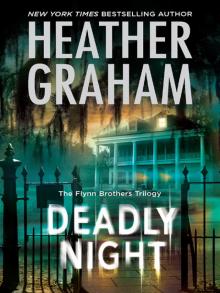 Deadly Night
Deadly Night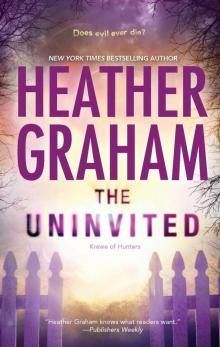 The Uninvited
The Uninvited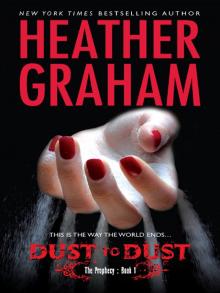 Dust to Dust
Dust to Dust Heart of Evil
Heart of Evil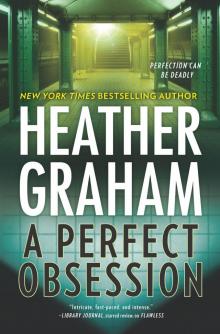 A Perfect Obsession
A Perfect Obsession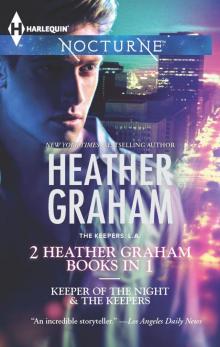 The Keepers
The Keepers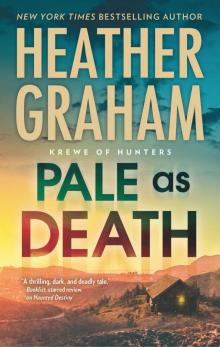 Pale as Death
Pale as Death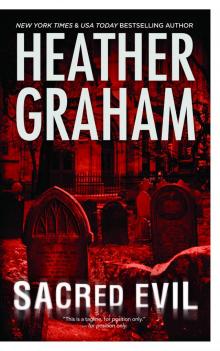 Phantom Evil
Phantom Evil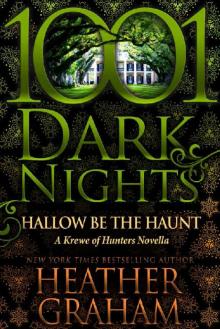 Hallow Be the Haunt
Hallow Be the Haunt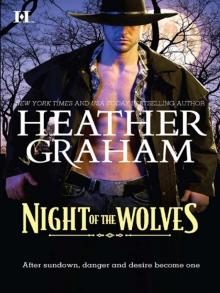 Night of the Wolves
Night of the Wolves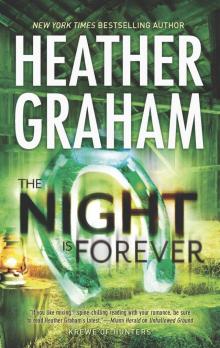 The Night Is Forever
The Night Is Forever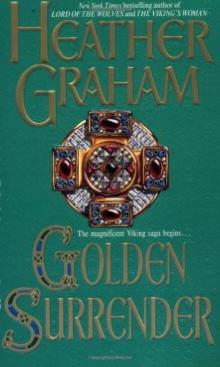 Golden Surrender
Golden Surrender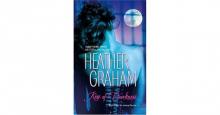 Kiss of Darkness
Kiss of Darkness Beneath a Blood Red Moon
Beneath a Blood Red Moon A Dangerous Game
A Dangerous Game Ghost Shadow
Ghost Shadow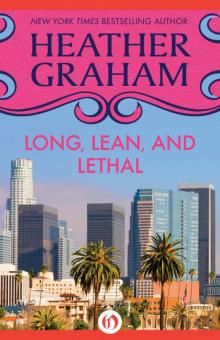 Long, Lean, and Lethal
Long, Lean, and Lethal Fade to Black
Fade to Black The Rising
The Rising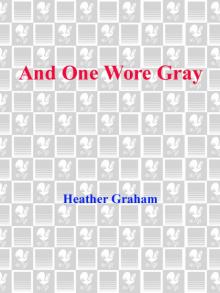 And One Wore Gray
And One Wore Gray Rebel
Rebel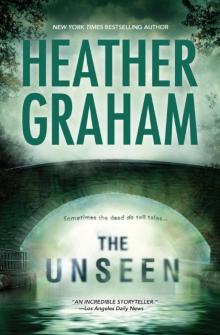 The Unseen
The Unseen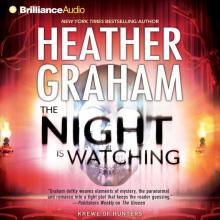 The Night Is Watching
The Night Is Watching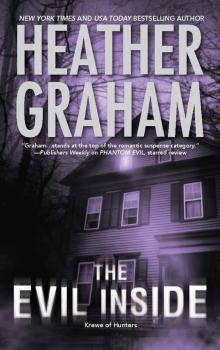 The Evil Inside
The Evil Inside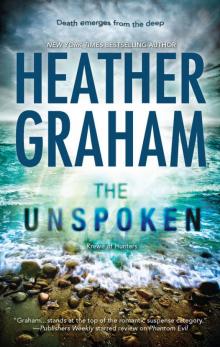 The Unspoken
The Unspoken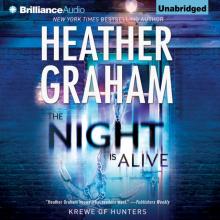 The Night Is Alive
The Night Is Alive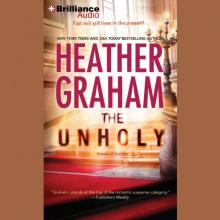 The Unholy
The Unholy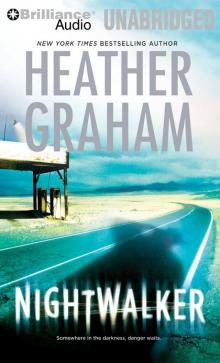 Nightwalker
Nightwalker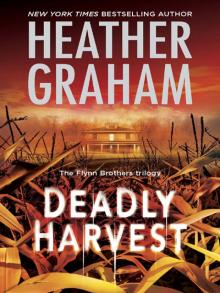 Deadly Harvest
Deadly Harvest An Angel for Christmas
An Angel for Christmas A Pirate's Pleasure
A Pirate's Pleasure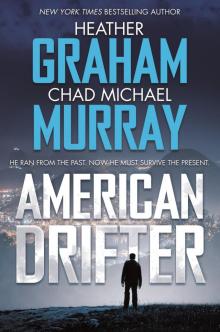 American Drifter
American Drifter Realm of Shadows
Realm of Shadows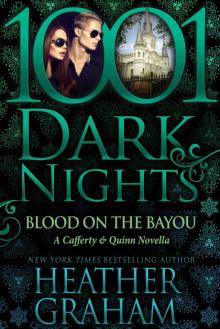 Blood on the Bayou
Blood on the Bayou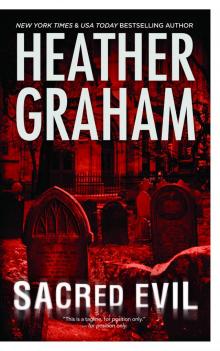 Sacred Evil
Sacred Evil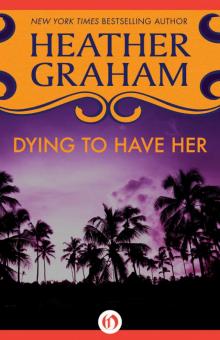 Dying to Have Her
Dying to Have Her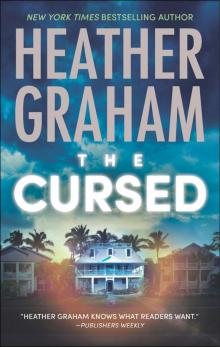 The Cursed
The Cursed Captive
Captive Hurricane Bay
Hurricane Bay Drop Dead Gorgeous
Drop Dead Gorgeous Ghost Memories
Ghost Memories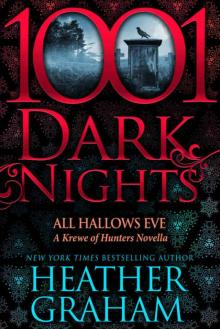 All Hallows Eve
All Hallows Eve Dying Breath
Dying Breath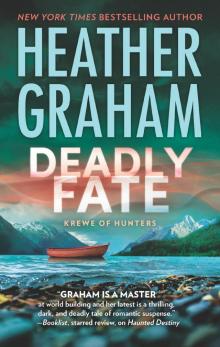 Deadly Fate
Deadly Fate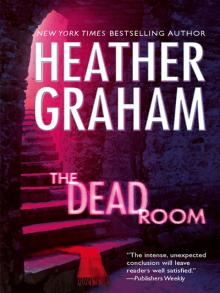 The Dead Room
The Dead Room Lord of the Wolves
Lord of the Wolves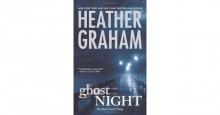 Ghost Night
Ghost Night Ghost Walk
Ghost Walk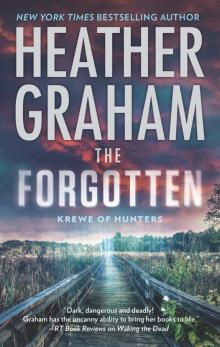 The Forgotten
The Forgotten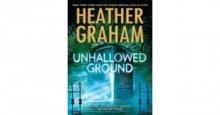 Unhallowed Ground
Unhallowed Ground One Wore Blue
One Wore Blue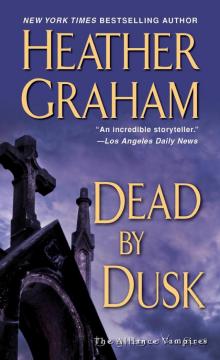 Dead By Dusk
Dead By Dusk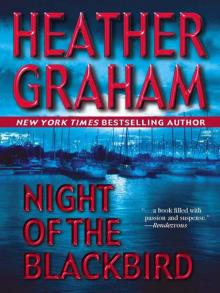 Night of the Blackbird
Night of the Blackbird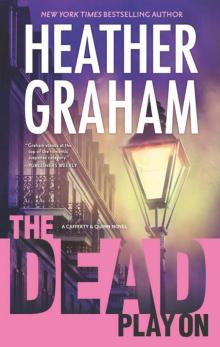 The Dead Play On
The Dead Play On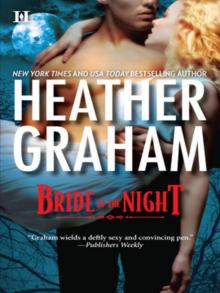 Bride of the Night
Bride of the Night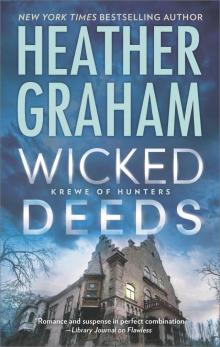 Wicked Deeds
Wicked Deeds The Forbidden
The Forbidden Triumph
Triumph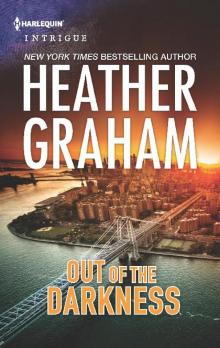 Out of the Darkness
Out of the Darkness Love Not a Rebel
Love Not a Rebel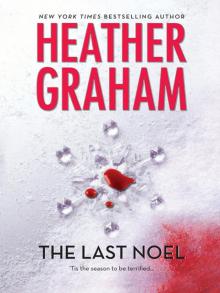 The Last Noel
The Last Noel Tall, Dark, and Deadly
Tall, Dark, and Deadly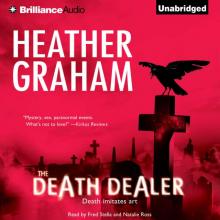 The Death Dealer
The Death Dealer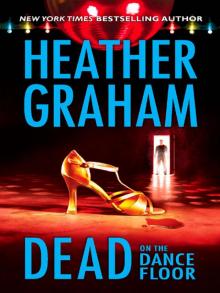 Dead on the Dance Floor
Dead on the Dance Floor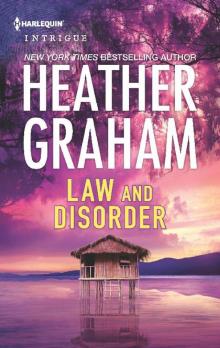 Law and Disorder
Law and Disorder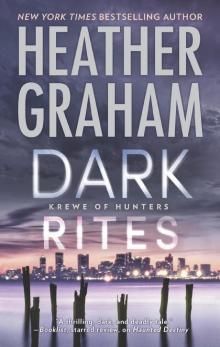 Dark Rites
Dark Rites New Year's Eve
New Year's Eve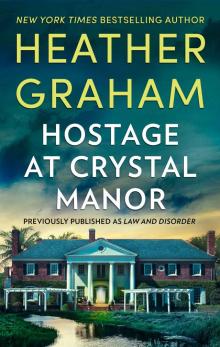 Hostage At Crystal Manor
Hostage At Crystal Manor And One Rode West
And One Rode West Home in Time for Christmas
Home in Time for Christmas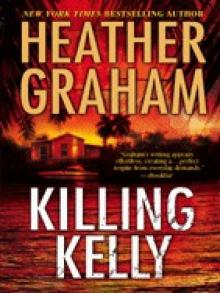 Killing Kelly
Killing Kelly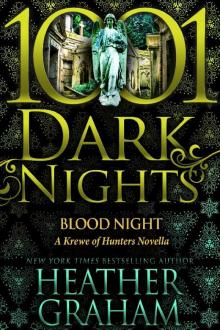 Blood Night
Blood Night Tangled Threat (Mills & Boon Heroes)
Tangled Threat (Mills & Boon Heroes)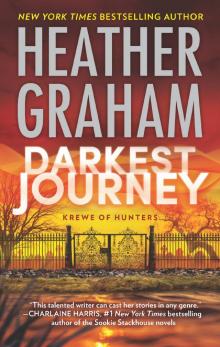 Darkest Journey
Darkest Journey Glory
Glory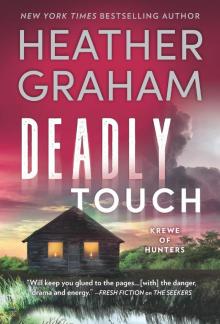 Deadly Touch
Deadly Touch An Unexpected Guest
An Unexpected Guest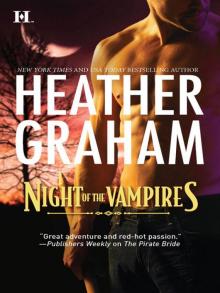 Night of the Vampires
Night of the Vampires Seize the Wind
Seize the Wind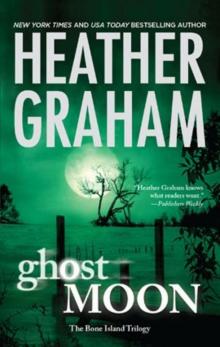 Ghost Moon
Ghost Moon The Vision
The Vision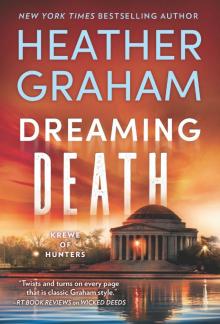 Dreaming Death
Dreaming Death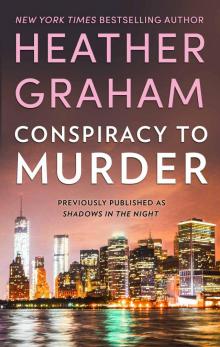 Conspiracy to Murder
Conspiracy to Murder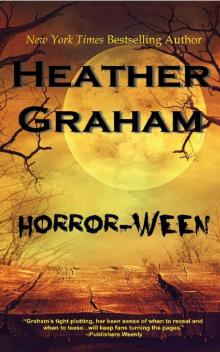 Horror-Ween (Krewe of Hunters)
Horror-Ween (Krewe of Hunters)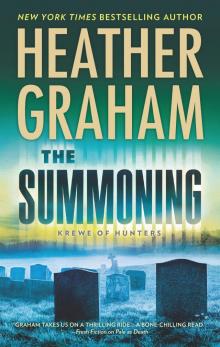 The Summoning
The Summoning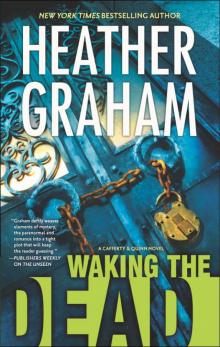 Waking the Dead
Waking the Dead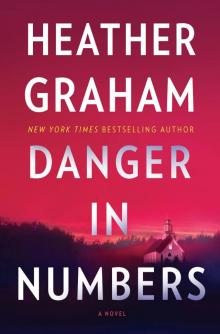 Danger in Numbers
Danger in Numbers The Hidden
The Hidden Sweet Savage Eden
Sweet Savage Eden Tangled Threat ; Suspicious
Tangled Threat ; Suspicious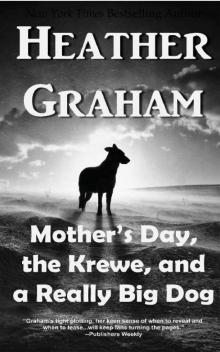 Mother's Day, the Krewe, and a Really Big Dog
Mother's Day, the Krewe, and a Really Big Dog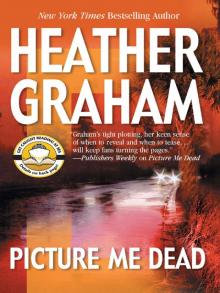 Picture Me Dead
Picture Me Dead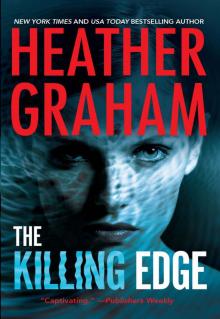 The Killing Edge
The Killing Edge St. Patrick's Day
St. Patrick's Day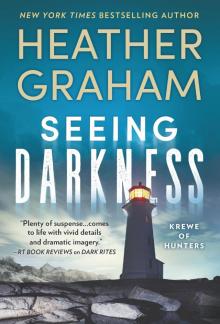 Seeing Darkness
Seeing Darkness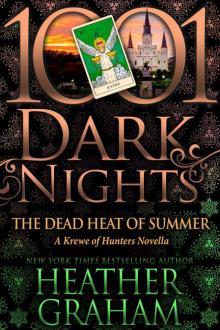 The Dead Heat of Summer: A Krewe of Hunters Novella
The Dead Heat of Summer: A Krewe of Hunters Novella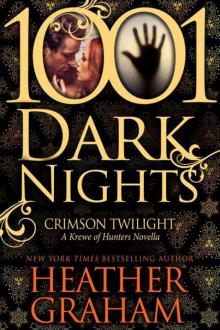 Crimson Twilight
Crimson Twilight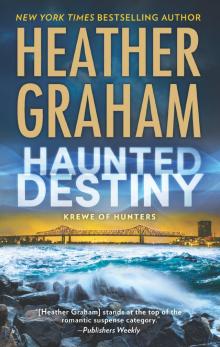 Haunted Destiny
Haunted Destiny Devil's Mistress
Devil's Mistress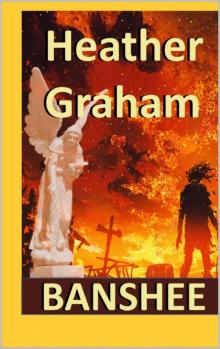 Banshee
Banshee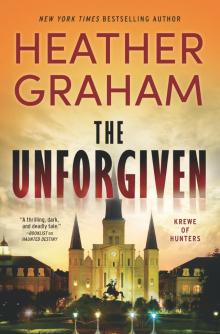 The Unforgiven
The Unforgiven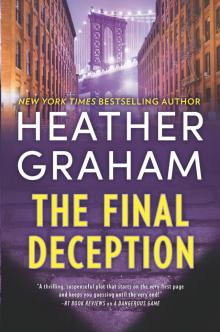 The Final Deception
The Final Deception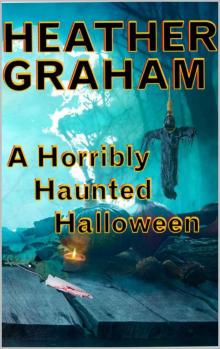 A Horribly Haunted Halloween
A Horribly Haunted Halloween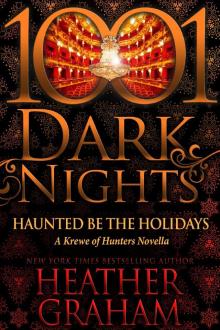 Haunted Be the Holidays
Haunted Be the Holidays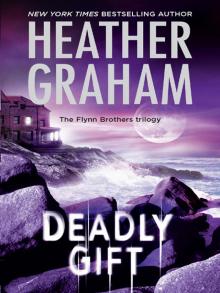 Deadly Gift
Deadly Gift Easter, the Krewe and Another Large White Rabbit
Easter, the Krewe and Another Large White Rabbit Haunted
Haunted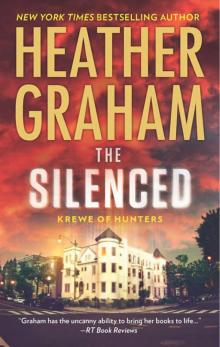 The Silenced
The Silenced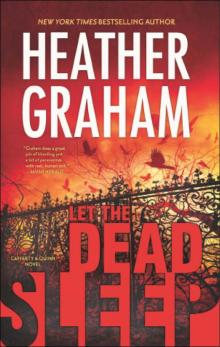 Let the Dead Sleep
Let the Dead Sleep Christmas, the Krewe, and Kenneth
Christmas, the Krewe, and Kenneth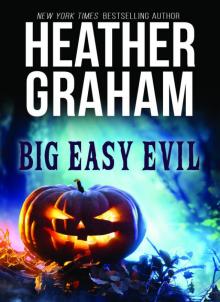 Big Easy Evil
Big Easy Evil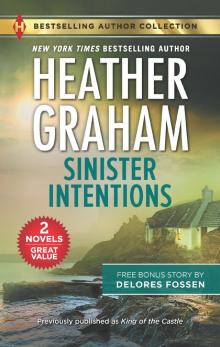 Sinister Intentions & Confiscated Conception
Sinister Intentions & Confiscated Conception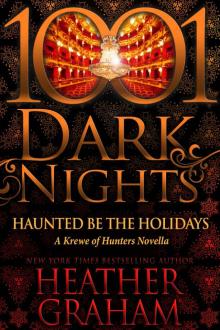 Haunted Be the Holidays: A Krewe of Hunters Novella
Haunted Be the Holidays: A Krewe of Hunters Novella Blood Red
Blood Red A Perilous Eden
A Perilous Eden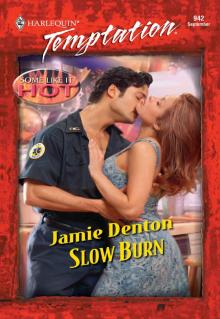 Slow Burn
Slow Burn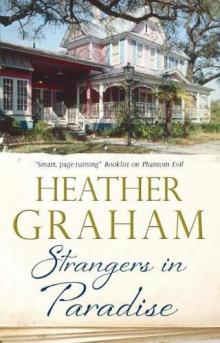 Strangers In Paradise
Strangers In Paradise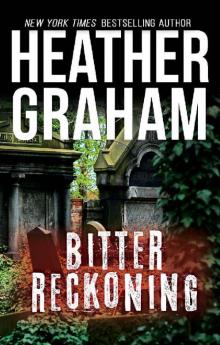 Bitter Reckoning
Bitter Reckoning Krewe of Hunters, Volume 1: Phantom Evil ; Heart of Evil ; Sacred Evil ; The Evil Inside
Krewe of Hunters, Volume 1: Phantom Evil ; Heart of Evil ; Sacred Evil ; The Evil Inside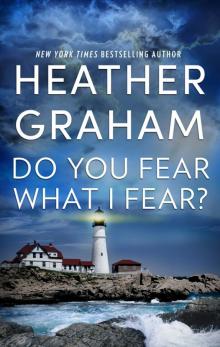 Do You Fear What I Fear?
Do You Fear What I Fear?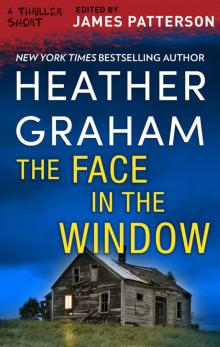 The Face in the Window
The Face in the Window Krewe of Hunters, Volume 3: The Night Is WatchingThe Night Is AliveThe Night Is Forever
Krewe of Hunters, Volume 3: The Night Is WatchingThe Night Is AliveThe Night Is Forever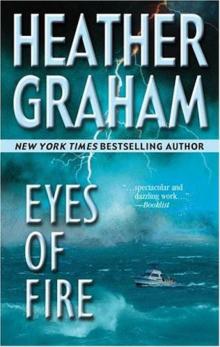 Eyes of Fire
Eyes of Fire Apache Summer sb-3
Apache Summer sb-3 Sensuous Angel
Sensuous Angel In the Dark
In the Dark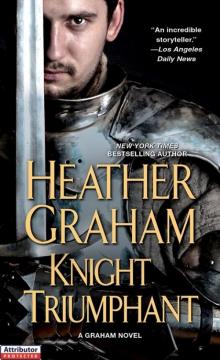 Knight Triumphant
Knight Triumphant Hours to Cherish
Hours to Cherish Tender Deception
Tender Deception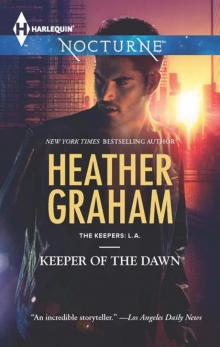 Keeper of the Dawn tkl-4
Keeper of the Dawn tkl-4 Apache Summer
Apache Summer Between Roc and a Hard Place
Between Roc and a Hard Place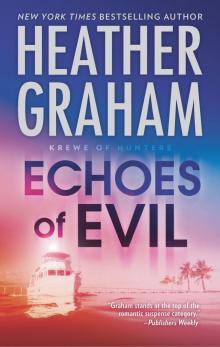 Echoes of Evil
Echoes of Evil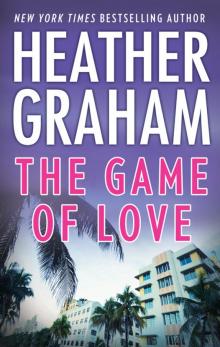 The Game of Love
The Game of Love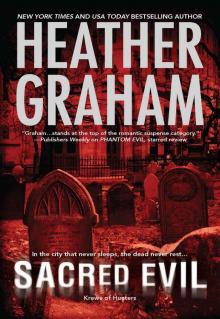 Sacred Evil (Krewe of Hunters)
Sacred Evil (Krewe of Hunters)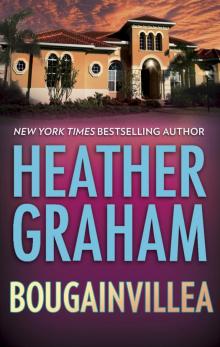 Bougainvillea
Bougainvillea Tender Taming
Tender Taming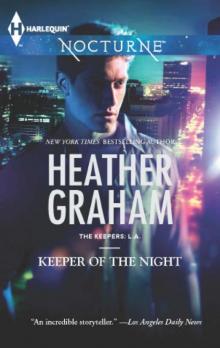 Keeper of the Night (The Keepers: L.A.)
Keeper of the Night (The Keepers: L.A.)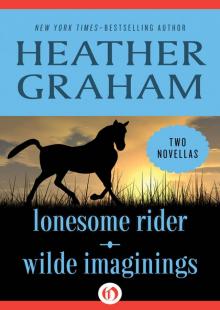 Lonesome Rider and Wilde Imaginings
Lonesome Rider and Wilde Imaginings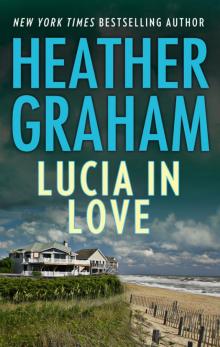 Lucia in Love
Lucia in Love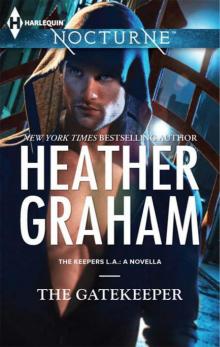 The Gatekeeper
The Gatekeeper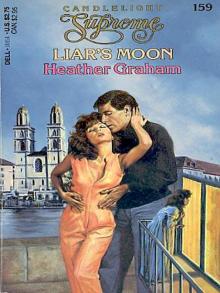 Liar's Moon
Liar's Moon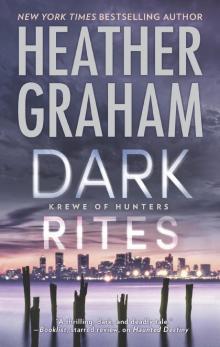 Dark Rites--A Paranormal Romance Novel
Dark Rites--A Paranormal Romance Novel A Season for Love
A Season for Love Krewe of Hunters, Volume 6: Haunted Destiny ; Deadly Fate ; Darkest Journey
Krewe of Hunters, Volume 6: Haunted Destiny ; Deadly Fate ; Darkest Journey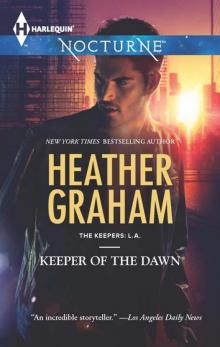 Keeper of the Dawn (The Keepers: L.A.)
Keeper of the Dawn (The Keepers: L.A.)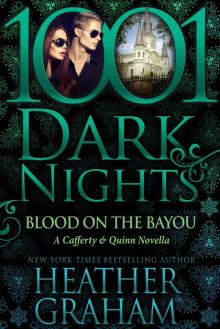 Blood on the Bayou: A Cafferty & Quinn Novella
Blood on the Bayou: A Cafferty & Quinn Novella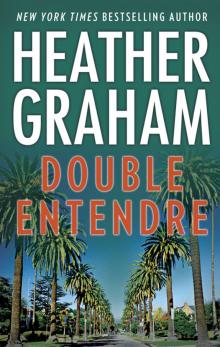 Double Entendre
Double Entendre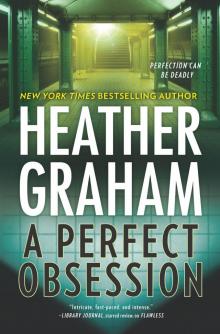 A Perfect Obsession--A Novel of Romantic Suspense
A Perfect Obsession--A Novel of Romantic Suspense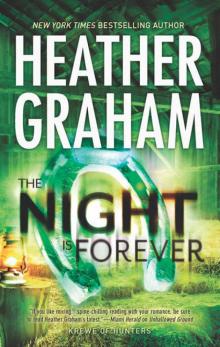 The Night Is Forever koh-11
The Night Is Forever koh-11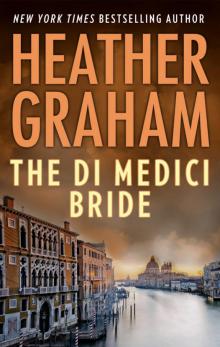 The Di Medici Bride
The Di Medici Bride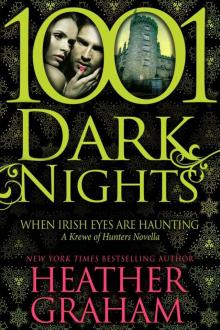 When Irish Eyes Are Haunting: A Krewe of Hunters Novella
When Irish Eyes Are Haunting: A Krewe of Hunters Novella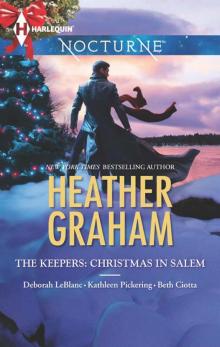 The Keepers: Christmas in Salem: Do You Fear What I Fear?The Fright Before ChristmasUnholy NightStalking in a Winter Wonderland (Harlequin Nocturne)
The Keepers: Christmas in Salem: Do You Fear What I Fear?The Fright Before ChristmasUnholy NightStalking in a Winter Wonderland (Harlequin Nocturne)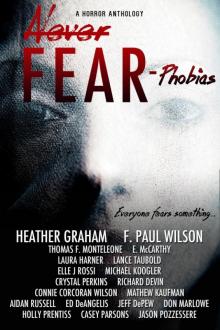 Never Fear
Never Fear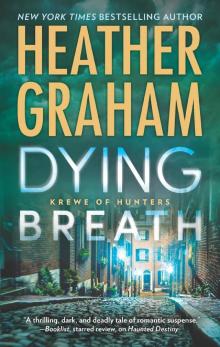 Dying Breath--A Heart-Stopping Novel of Paranormal Romantic Suspense
Dying Breath--A Heart-Stopping Novel of Paranormal Romantic Suspense If Looks Could Kill
If Looks Could Kill This Rough Magic
This Rough Magic Heather Graham's Christmas Treasures
Heather Graham's Christmas Treasures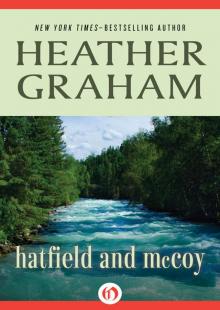 Hatfield and McCoy
Hatfield and McCoy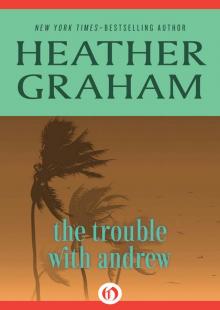 The Trouble with Andrew
The Trouble with Andrew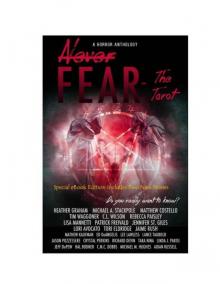 Never Fear - The Tarot: Do You Really Want To Know?
Never Fear - The Tarot: Do You Really Want To Know?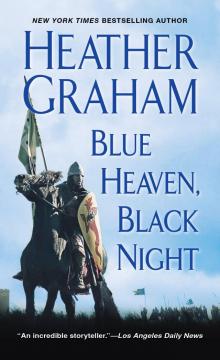 Blue Heaven, Black Night
Blue Heaven, Black Night Forbidden Fire
Forbidden Fire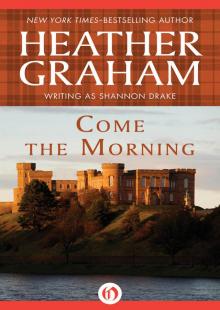 Come the Morning
Come the Morning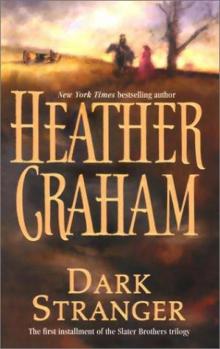 Dark Stranger sb-4
Dark Stranger sb-4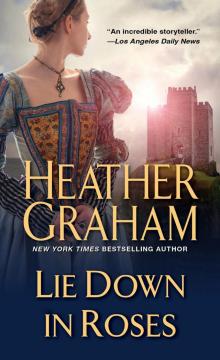 Lie Down in Roses
Lie Down in Roses Red Midnight
Red Midnight Krewe of Hunters Series, Volume 5
Krewe of Hunters Series, Volume 5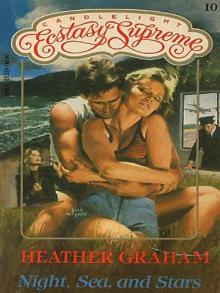 Night, Sea, And Stars
Night, Sea, And Stars Snowfire
Snowfire Quiet Walks the Tiger
Quiet Walks the Tiger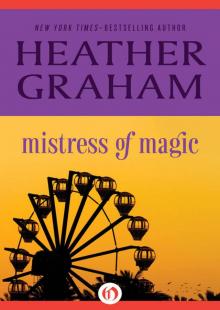 Mistress of Magic
Mistress of Magic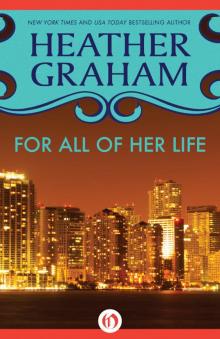 For All of Her Life
For All of Her Life Runaway
Runaway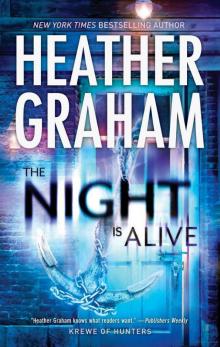 The Night Is Alive koh-10
The Night Is Alive koh-10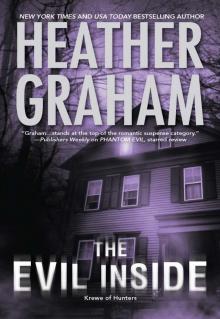 The Evil Inside (Krewe of Hunters)
The Evil Inside (Krewe of Hunters)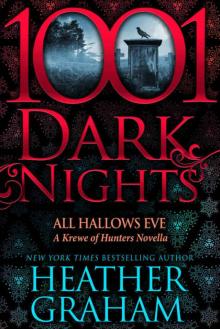 All Hallows Eve: A Krewe of Hunters Novella (1001 Dark Nights)
All Hallows Eve: A Krewe of Hunters Novella (1001 Dark Nights)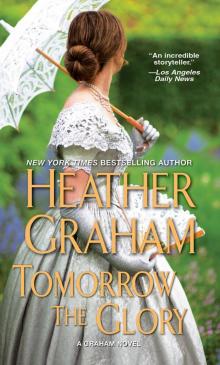 Tomorrow the Glory
Tomorrow the Glory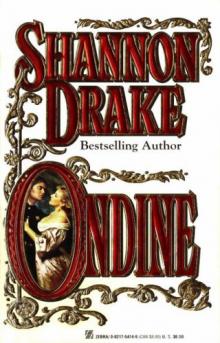 Ondine
Ondine Angel of Mercy & Standoff at Mustang Ridge
Angel of Mercy & Standoff at Mustang Ridge Bride of the Tiger
Bride of the Tiger When Next We Love
When Next We Love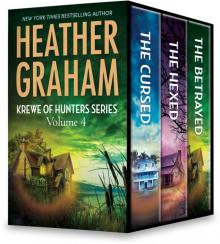 Heather Graham Krewe of Hunters Series, Volume 4
Heather Graham Krewe of Hunters Series, Volume 4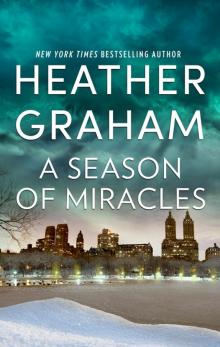 A Season of Miracles
A Season of Miracles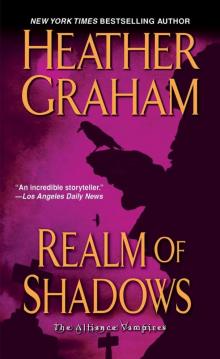 Realm of Shadows (Vampire Alliance)
Realm of Shadows (Vampire Alliance)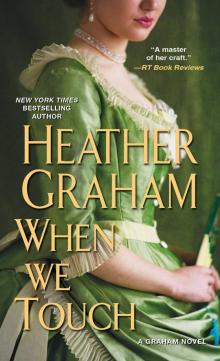 When We Touch
When We Touch Serena's Magic
Serena's Magic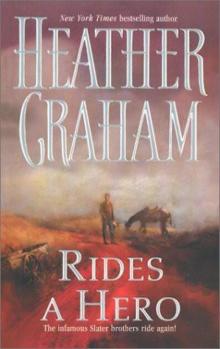 Rides a Hero sb-2
Rides a Hero sb-2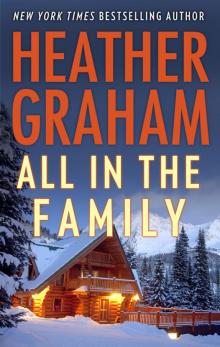 All in the Family
All in the Family Handful of Dreams
Handful of Dreams A Stranger in the Hamptons
A Stranger in the Hamptons Krewe of Hunters, Volume 2: The Unseen ; The Unholy ; The Unspoken ; The Uninvited
Krewe of Hunters, Volume 2: The Unseen ; The Unholy ; The Unspoken ; The Uninvited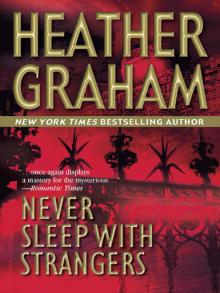 Never Sleep With Strangers
Never Sleep With Strangers Eden's Spell
Eden's Spell A Magical Christmas
A Magical Christmas Forever My Love
Forever My Love King of the Castle
King of the Castle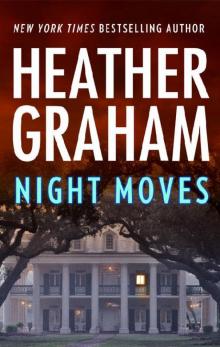 Night Moves (60th Anniversary)
Night Moves (60th Anniversary) The Island
The Island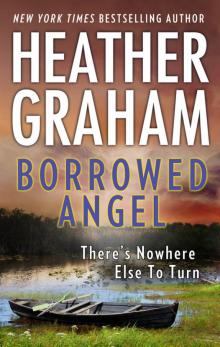 Borrowed Angel
Borrowed Angel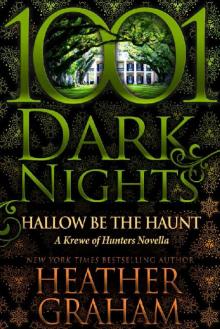 Hallow Be the Haunt: A Krewe of Hunters Novella
Hallow Be the Haunt: A Krewe of Hunters Novella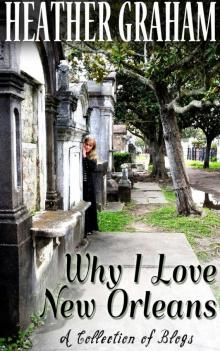 Why I Love New Orleans
Why I Love New Orleans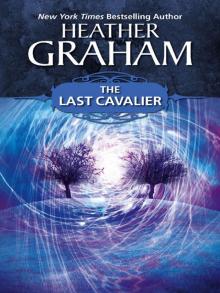 The Last Cavalier
The Last Cavalier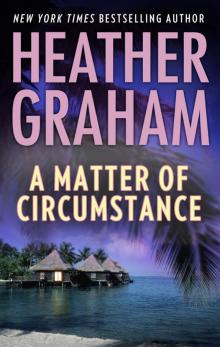 A Matter of Circumstance
A Matter of Circumstance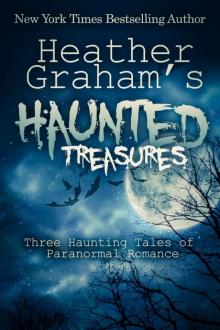 Heather Graham's Haunted Treasures
Heather Graham's Haunted Treasures Tempestuous Eden
Tempestuous Eden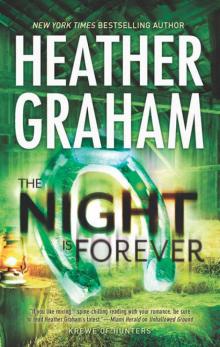 Krewe 11 - The Night Is Forever
Krewe 11 - The Night Is Forever